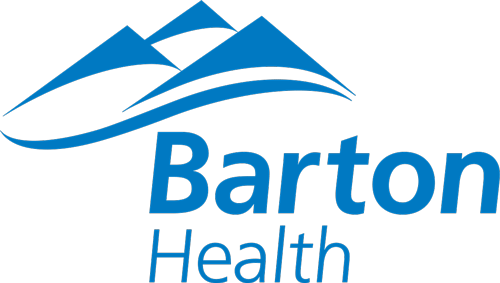
Riding a bicycle offers many physical and mental health benefits. Cycling is a cardiovascular workout that burns calories and targets your lower body muscles while minimizing the stress on your joints, knees, and hips, making it a great low impact cross-training activity. Considering the price of fuel these days, biking is a great way to save money, spend extra time outside, and get fit while doing it.
Here are a few ways to get the most out of your ride, whether you're cycling around your neighborhood or local trails, on vacation, or to and from work.
Size up your bike
Your bike should be sized according to your body proportions for both efficiency and injury prevention. Consider a clinical bike fit that confirms you are on a bike with the correct frame size — everything from frame size to seat height is important for correct body mechanics and power during a ride.
Use your gears
Most bikes have gears. To get a good workout, learn to use them. In general, gear down when you're riding into the wind or uphill; gear up when riding with the wind or downhill. The gears should be used to maintain a steady cadence whether going uphill or down, into the wind, or with the wind at your back. Proper shifting will improve your speed and endurance and also makes the ride safer with less impact on your joints.
Ideally, you should ride in a gear that allows you to maintain your target heart rate — 50 to 70 percent of your maximum heart rate. Your target heart rate is the range at which sustained physical activity — running, cycling, swimming laps, or any other aerobic exercise — is considered safe and effective, according to the Centers for Disease Control and Prevention. You can calculate your maximum heart rate by subtracting your age from 220. Multiply this figure by 0.50 and 0.70 to get your target heart rate range. The more fit you are, the higher the percentage can go. For a precise measurement as you exercise, consider using a heart rate monitor.
Get in bike shape
Cycling may be a low impact sport, but it’s far from easy. By starting out too intensely, you may get frustrated and increase your risk for chronic injury, such as tendonitis. Take it slow and consider a training plan that helps you incrementally increase your ride intensity and duration.
Each ride, gradually elevate your heart rate by warming up for the first five to 10 minutes, pedaling slowly and riding on flat ground. At the end of your ride, cool down for five minutes by gearing down and pedaling more slowly.
Cycle sensibly
Always wear a bicycle helmet and, if you cycle often, consider wearing padded cycling shorts to increase comfort. Padded gloves can reduce the pressure on your hands. It's also wise to keep a water bottle handy and take a sip at least every 15 minutes.
Avoid riding on heavily trafficked streets. When you're on the road, it’s best to have flashing bike lights and wear bright, noticeable clothing. Always signal to drivers when you are going to make a turn. Ride on the right side of the road, in the same direction as traffic. Overall, follow common sense safety rules and ride only in areas where you feel comfortable and safe.
Take advantage of the many benefits of cycling and enjoy the impact on your health. Happy riding!
For more information or to schedule a fitting, call (530) 539-6675 or visit BartonOrthopedicsandWellness.com.
Visit BartonOrthopedicsAndWellness.com



 Harrison Brown, DPT is a certified bike fit specialist and physical therapist at Barton Rehabilitation and Sports Medicine.
Harrison Brown, DPT is a certified bike fit specialist and physical therapist at Barton Rehabilitation and Sports Medicine.
